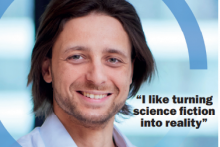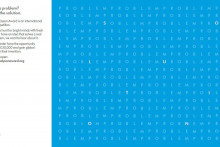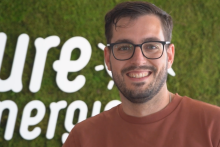‘In Networks, we work on a daily basis on improving digital networks', says Karim El Assal. 'Additionally, we’re involved in the media which is sent via these, such as virtual reality, augmented reality and the new means of communication that these altered realities enable. That last part is where I come in. I’m now working on a large project called ERP Social XR, in which I lead the software development at the integration level. This is about linking components that are developed individually, such as the recording, distribution and displaying of 3D video. By integrating these, we can realise the entire pipeline from camera to display.’
Development
Initially, it’s all about business applications, especially for meetings, says Karim. ‘Examples include meetings in which you can look at a 3D object together or really want to feel like you’re in the same room. But there’s also healthcare applications, through which can you be ‘in the room’ with the elderly, so to speak. Or ‘remote expertise’, where you allow an expert to be present virtually.’
From today’s film to tomorrow’s world
‘I first did a bachelor’s in Advanced Technology at the University of Twente, followed by a master’s in Computer Science with a focus on Software Technology and Data Science. I began working at TNO immediately afterwards. I remember going to the job interview wondering what I could do at a networks department. That was, until the research manager told me about the Social XR projects. I was enthusiastic right away as I like turning science fiction into reality. Extended reality is one of the steps that will ensure that we can live in a future which we now see in films.’
Find your own place
Innovation is central at TNO, as is the desire to contribute something to society. ‘That’s the kind of organisation I want to work for. The size of the organisation also played a part: it offers so many opportunities to actually shape innovation. And TNO’s ‑ exibility appealed to me immediately: you can choose when you work and what you work on. When you’re just starting out, you have to find your feet because things are not automatic here. At TNO, they don’t say: here’s a job, go and work on it for 4 or 5 days a week.’
Thinking about the long term
‘My work now revolves around software development, but I’ve also become the open-source manager for the entire ICT unit. Networks is one of the five departments of this unit. Together, we’ve opted for a more open-source strategy in projects where this is possible. What do I want in the future? To be honest, I have no idea yet. That’s actually the phase I’m in now: thinking about what I want in the long term. I’ll spend some time on that in the coming period, and TNO is giving me all the space I need for this.’







